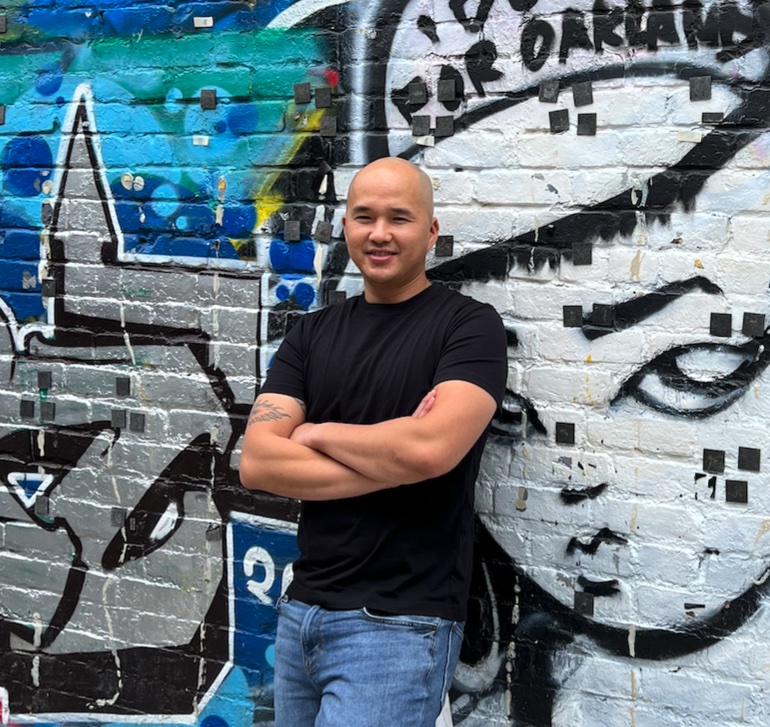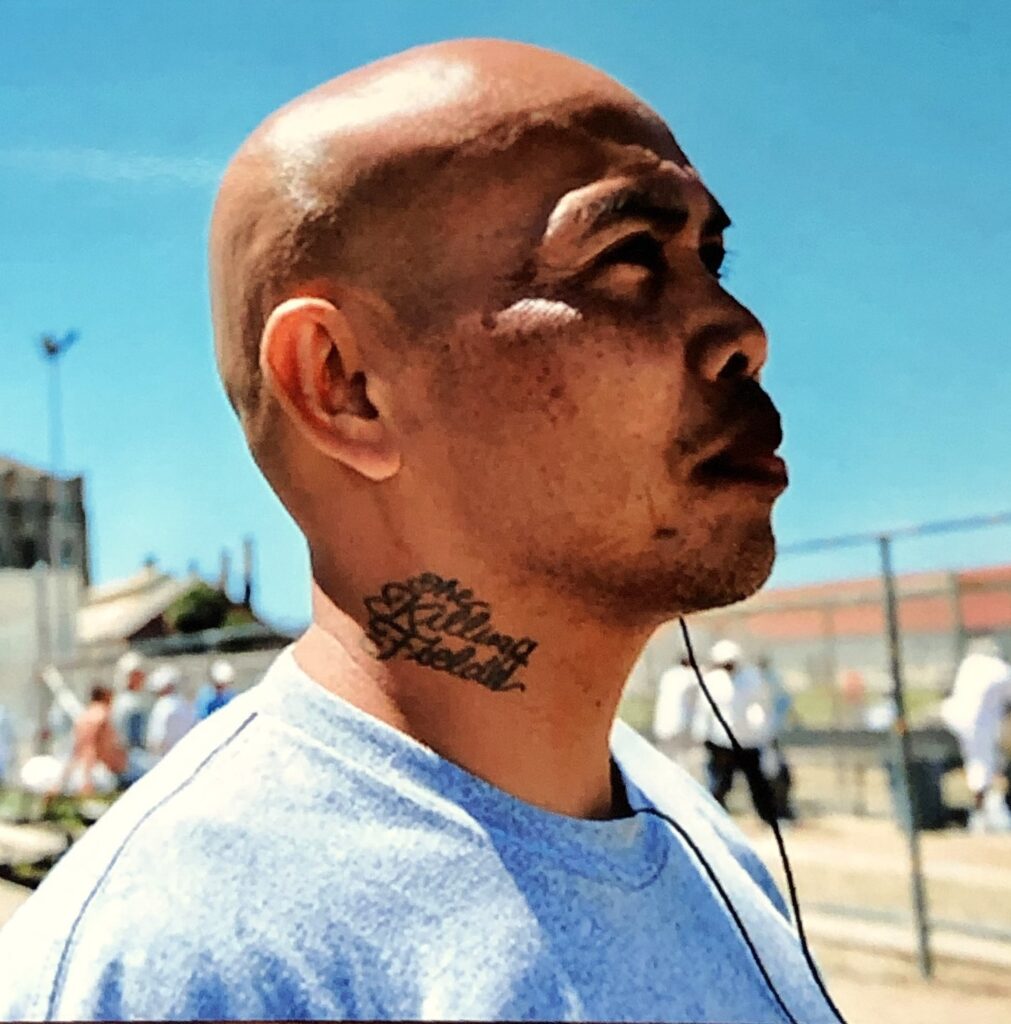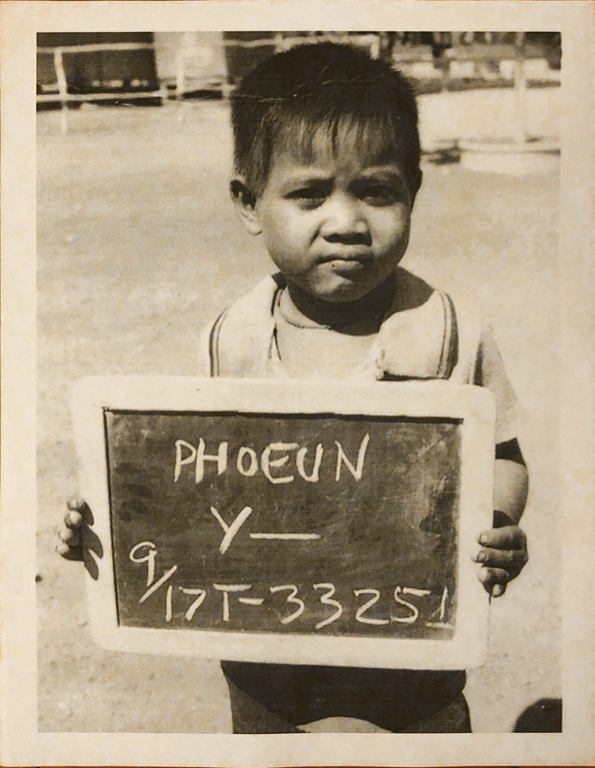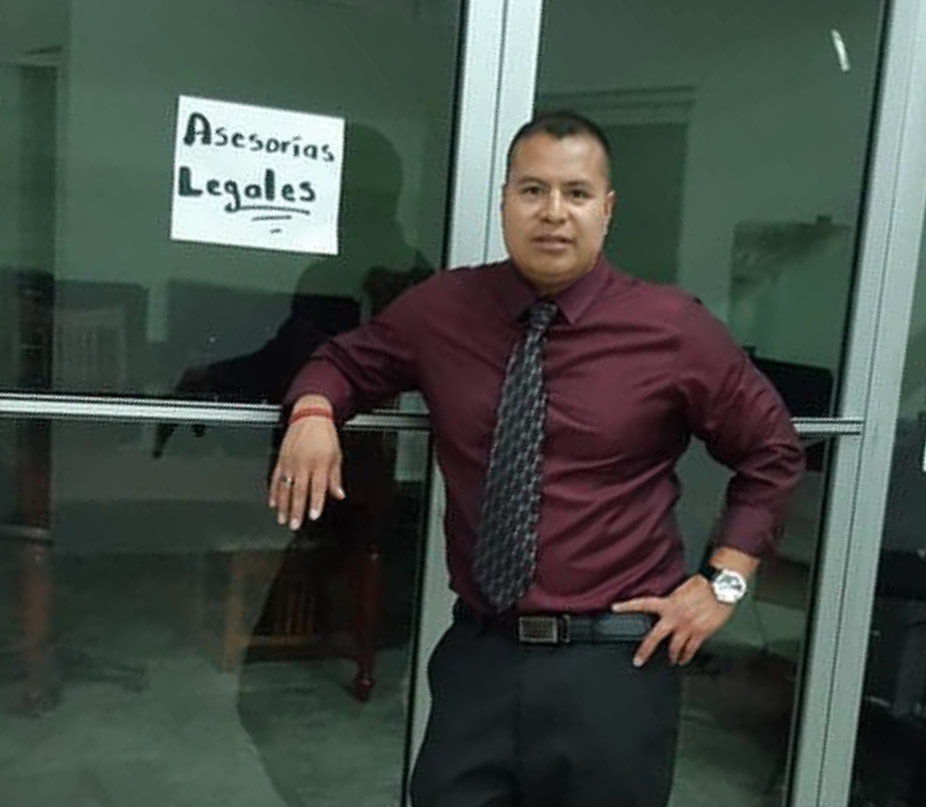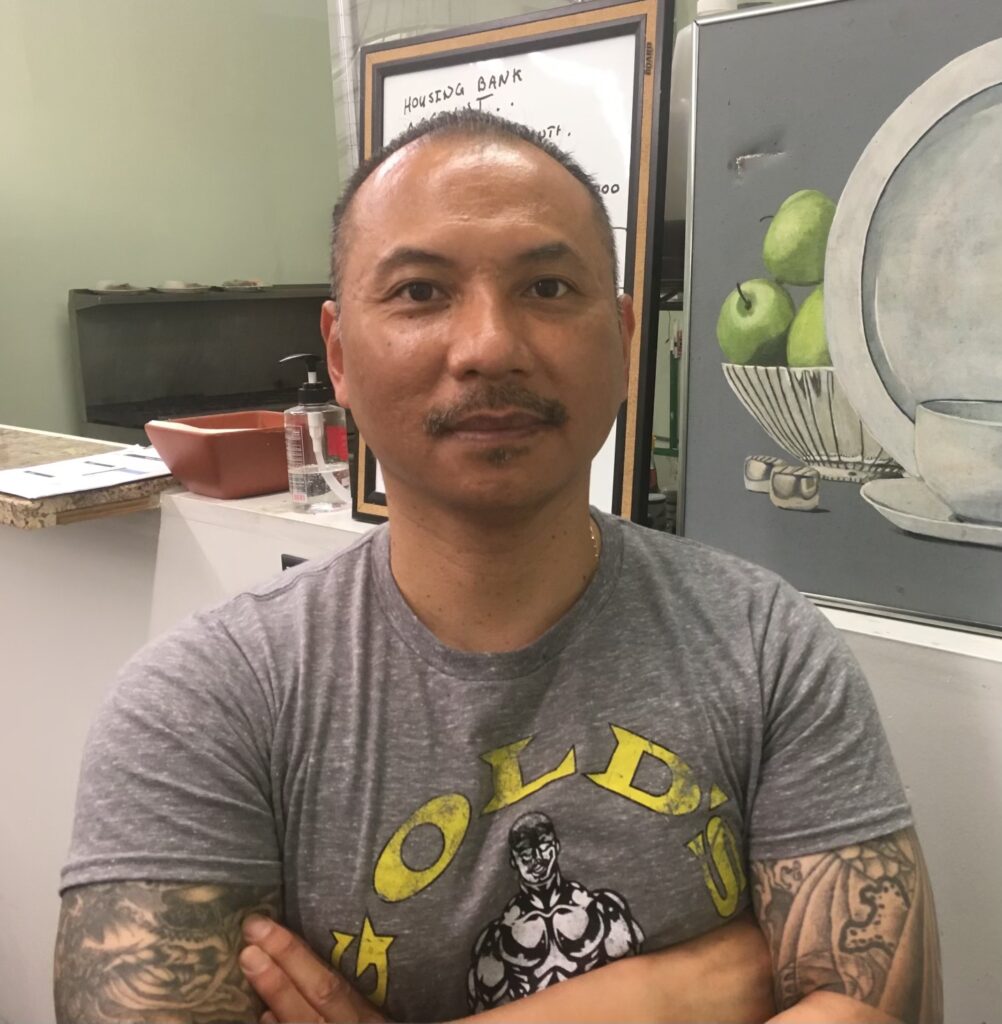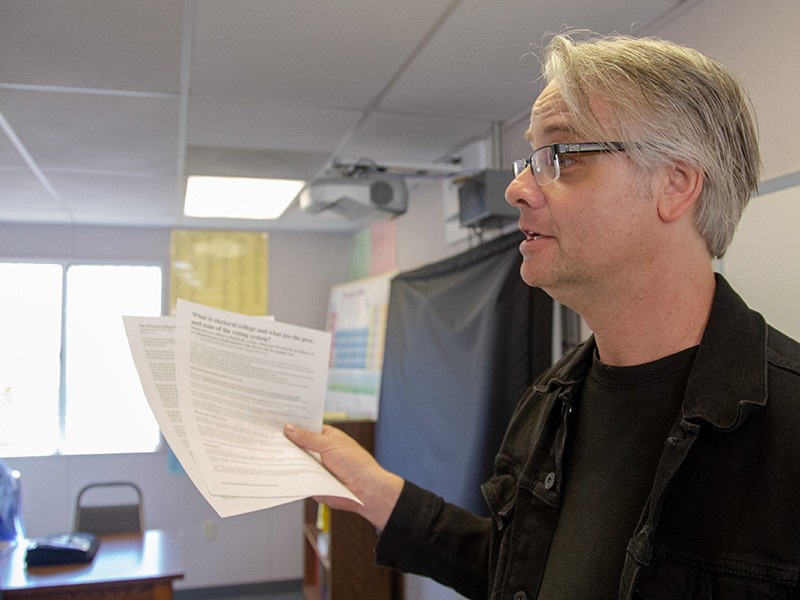Alumnus and Author Emile DeWeaver Discusses his Newly Released Book with MTC Trustee and fellow Alumnus Sha Stepter
On July 28, Mount Tamalpais College’s Guest Lecture Series brought together two distinguished alumni—author and activist Emile DeWeaver and MTC Trustee Sha Stepter—for a conversation with students inside San Quentin Rehabilitation Center. Drawing on their lived experiences of incarceration, DeWeaver and Stepter explored ways education and storytelling can foster personal growth, agency, and advance prison reform.
DeWeaver discussed his recently released book, Ghost in the Criminal Justice Machine, which chronicles his path from incarceration to author and activist. While in prison, DeWeaver became a community organizer, writer, and journalist, and co-founded Prison Renaissance, a platform that supported incarcerated artists and authors in fostering artistic and personal growth. His sentence was commuted by Governor Jerry Brown in 2017 in recognition of his community service and transformation.
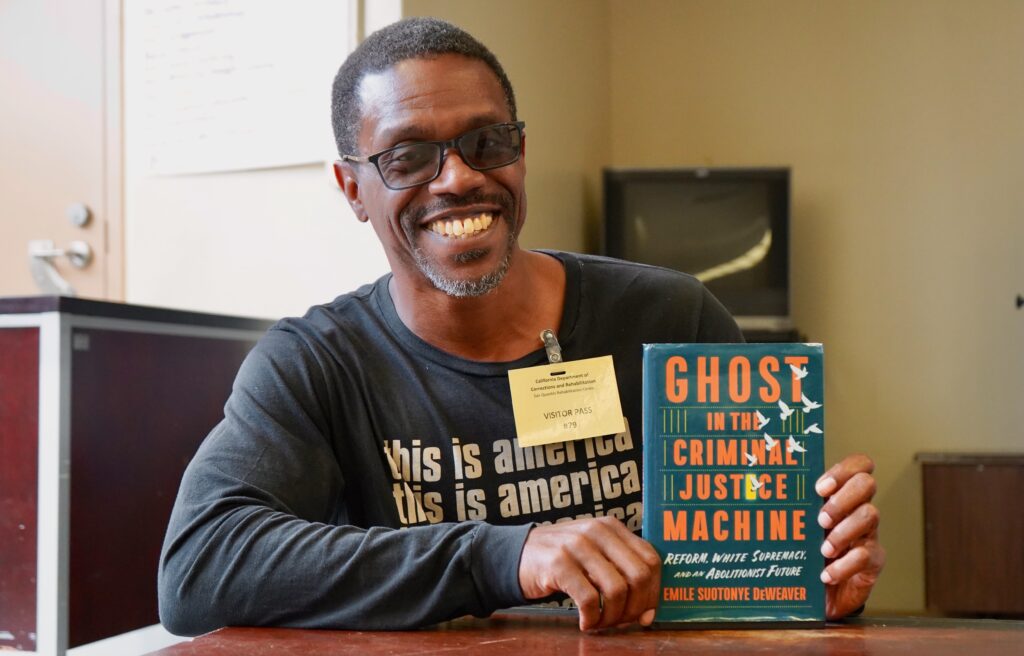
MTC Trustee Sha Stepter, who had his sentence commuted in 2018, spoke about his shared experiences with DeWeaver: “We were in West Block together. I have a lot of history with this man. I’ve seen through him the power of organizing—and his book is a testament to that.”
DeWeaver also focused on the themes of power and accountability. He urged students to think critically about power not as domination, but as agency—the ability to act, to choose, to create. “Your relationship to power is the most important thing to consider,” DeWeaver said. “We must be intentional about how we focus that power.”
For Stepter, Mount Tamalpais College played a critical role in helping him understand his own power and influence. “I began living my opportunity in 2012, when I was in the hole [solitary confinement]. An MTC administrator came and found me to check on my work for one of my classes. That’s when I realized I was doing things that were actually getting me further away from going home. I started to understand that I was accountable for my own healing and happiness.”
Stepter noted that his relationships with MTC faculty and classmates deeply shaped his sense of self. “Seeing faculty walk down the yard, especially for the night classes, made a big impression on me. At MTC, people told me I mattered—and it wasn’t just the volunteers. It was also people in blue telling me they needed me.”
The power of the written word was a focal point of the conversation. DeWeaver described how writing became central to his life in prison. “When I was on trial, my kid was born, and it changed my entire world. Facing a life sentence, I was 19 years old, with a newborn. It was too much for me to hold. So I decided I would write myself out of prison, and 21 years later, that is literally what I did.”
Reading and writing, he explained, became both survival and resistance. “By the time I got out of county jail and into prison, I was writing sometimes 14, 16 hours a day in my cell. Getting books from different programs, anyone who would send me something, I just read everything.”
He worked steadily at his craft for more than a decade before seeing his work published. “It took me about 12 years to finally get published, right about when I transferred to San Quentin. It was a piece called Superman, my first semi-autobiographical piece. I drew from a mix of relationships in my life—my father, and one of my best friends at Solano [State Prison] who came out to me as gay. The piece brought those experiences together.”
Since his release in 2017, DeWeaver has earned wide recognition for his literary work and journalism. In addition to the release of his debut book in May 2025, he has received the 2021 Keeley Schenwar Memorial Prize, a 2022 Soros Justice Media Fellowship, and a fellowship with the Center for Just Journalism.
MTC students shared that they found the conversation both educational and motivational.
“These guest speakers are an inspiration, especially because they can speak about both sides of the spectrum, having experienced life as inmates and as free people,” one student noted after the discussion. “Thank you to MTC for bringing such speakers into our lives, providing hope and a new perspective on how to expand our social life within the gated community.”
